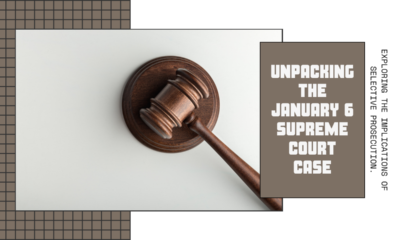Human Interest
Socialism, communism, and their pernicious appeal

Overnight (January 28-9, 2018) on Quora.com, someone asked, “Why do many Americans prefer socialism or communism?” Whoever asked that, had evidence. So let us examine the evidence, some definitions, and people’s reasons.
Defining capitalism, socialism, and communism
First, before discussing capitalism, socialism, and communism, one must define those terms. By convention, economists once defined socialism as government ownership of the “major” means of production, distribution and exchange. They then define communism as government ownership of all means of production, distribution, and exchange.
But today defenders of socialism extend its definition, to heighten its appeal. They include the police and the military as socialistic institutions. Oddly enough, Adam Smith did not. He did not even object to government ownership of roads. His imagination failed him on that point; more on that below.
More to the point, let us define capitalism, communism, and socialism properly and consistently for our purpose:
- Capitalism means private ownership and operation of everything in the economy except the police, the military, and the law courts.
- Communism means government ownership and operation of everything in the economy. The government assigns you to a school, then to a job. And instead of paying you, it dispenses rations of food, water, and whatever else the government deems necessary.
- Socialism means anything in-between. Socialism can have degrees. Communism and capitalism are absolutes. They exist at the ends of the political-economic continuum.
The special cases of police, military, and courts
Many people place police, military, and law courts in the same category as providers of other goods and services. In so doing they make a mistake. These institutions manage force. When someone initiates the use of force, naturally the other party wants to retaliate. Government manages that retaliation. The police serve that function, as sheriffs (and United States Marshals in the Old West) also do. (The very word police comes from the Greek word polis, meaning a city. The police are the force that keeps order in a city.) Without them, crime would lead almost inevitably to blood feuding.
The military exist to correct a free-rider problem. The coastal areas of any nation-state will feel any mass invasion first. When they fall, the interior becomes vulnerable. But interior residents have less incentive to prepare a defense than do coastal residents. A national army solves the free-rider problem by asking all residents, coastal and interior, to contribute. The army then fights where fighting will do the most good.
Private arbitration might serve in some cases to settle certain kinds of disputes. But any dispute involving the use of force must go to a central judiciary. To do otherwise is to take the same risk of blood feuding as one takes without true police.
Anarcho-capitalism would privatize all three institutions. But it would fall apart rapidly. The result would likely be the situation that arose in Sicily and Corsica. Authors like Mario Puzo described it far better than your editor can here.
The not-so-special cases of streets and roads
Throughout history, governments have owned all or most roads, only because other societies have done it that way. But transportation, unlike law enforcement and military defense, is a service like any other. So when apologists for socialism say, “You use a public road; you therefore benefit from socialism,” they have it half right. True enough, the government “provides” roads. But the government forbids anyone else to build or run roads. So the use of a government road cannot be an endorsement of socialism. Without the ability to say ‘No,’ your ‘Yes’ means nothing.
Your editor treated the issue of streets and roads here five and one-half years ago. In brief, local roads would likely belong to the neighbors. This would include “neighboring” commercial and industrial property owners, as well as homeowners and apartment development landlords. Highways, that connect towns and States, would carry tolls. (Or maybe not. Limited-access highways might carry tolls. But regular-access highways need not. Those who owned commercial properties along the highway would pay for it to keep the traffic coming.)
Evidence for an appeal of socialism and communism
Everyone can see, in every election, evidence that socialism and communism appeal to many. If no one wanted any measure or part of socialism or communism, the Democratic Party would get zero votes today.
Instead, of course, Virginia elected “scalawag” Ralph Northam to replace “carpetbagger” Terence McAuliffe. (Or rather, the Beltway Bandits and their employees did. So did typical beneficiaries of socialism in Fairfax County and the Cities of Richmond, Petersburg, et al.) And New Jersey elected Phil Murphy, a communist in all but name. For that reason, “For Sale” signs now prevail heavily in neighborhoods that heretofore saw no buying opportunities.
Why do any Americans vote that way? What explains the appeal of socialism and communism?
Appeal of socialism: risk aversion
Most Americans who want anything less than unfettered capitalism simply lack imagination on how good capitalism can be when the government stays out of the way. Shoddy or even downright unsafe merchandise or workmanship worries them. These risk-averse people want to make sure that never happens to anyone anywhere at all.
Impossible, of course. Except for one thing: if you abolished all regulations today, tomorrow the insurance industry would invent an agency who would do the regulating for them. That agency would require people to measure up to those regulations before they accepted any particular insurance risk.
But wait! The insurance industry already has such an agency. They formed it in 1893 at the Chicago World’s Fair, and called it Underwriters’ Laboratories. UL describe their own history most eloquently here. So let’s revise that: if you abolished a body of regulations today, tomorrow UL would write their own regulations and expand into that area of regulation.
Here’s a funny thing, that I have heard directly from a contractor doing work on my new house. Nobody bribes UL or any of its inspectors. But people bribe government inspectors all the time. What does that tell you? Hmmm? Hmmm?
Private groups besides UL
Nor is UL the only private group that can take the place of government in an area other than police, military, and law courts. (In case you’re wondering, your local Volunteer Fire Brigade is an example of private, not-for-profit groups operating in another usurped area of government: emergency first response.)
Did you know that Aviation Radio, Incorporated (Arinc), that today handles cockpit-to-cockpit communications between airliners and their dispatchers, once operated the air-traffic control system? Thank Comrade Citizen Franklin Delano Roosevelt for taking that function away from Arinc!
And if you like the United States Postal Service, you are gonna love socialized medicine. Oh, wait. You do “love” socialized medicine, don’t you? How’s that working out for you?
Appeal of socialism: national pride
Now let’s turn to the people who want what people commonly mean by socialism and communism—that is, the government running things that in the United States are usually private enterprises.
Well, there’s this matter of “national pride.” A national railroad, or a national airline, becomes a symbol of pride. Transportation and communications are usually the first things to go socialistic, after medical care. Hence British Railways, British Airways, the Syndicat National de Chemins-de-fer Francais, Air France, Lufthansa, Iberia, Aer Lingus, et cetera. And Amtrak over here—though we don’t yet have AmAir. Well, compare Amtrak to any of the privately owned and run commercial airlines. How would you rather travel?
And will Amtrak displace the private automobile? Fat chance. Giving passenger service back to CSX, the IC, Norfolk Southern, et al., might give you that result. But Amtrak? I’ve ridden it. Again: fat chance. The only way that’s going to happen is if the government flat-out outlaws private automobiles and sends out a special gendarmerie or SWAT force to confiscate them all. (Hm-m-m-m. Why were UN troops training in America for urban warfare during the Obama administration? You don’t think maybe…oh, no. Of course not. Fantastic. Or is it…?)
Appeal of “true” communism
Finally let’s consider those who hear “communism” and think of that True Communism and its vision of superabundance. So great will that abundance be that all anyone need do is reach out and grab it. They can then pick it off as easily as picking fruit off a tree. That tree will then grow a new fruit as soon as someone picks off an old one.
Ladies and gentlemen, let’s get real. The Soviet Union had decades to bring that off, and gave it up completely. (Viktor I. Belenko, who famously defected with his MiG-25 in 1976, gave the best description to date of this failure.) The Chinese moved to a kind-of, sort-of socialism. Lenin said the goal of socialism was communism—meaning that True Communism. Only on Star Trek, with its replicators, does anything like True Communism appear.
In the real world, Lenin’s successors backed off from that. The Scandinavians won’t even try to move any further forward toward total communism than they’ve gotten already. The ChiComs, again, backed off from it. Indeed they came close to accusing Chairman Mao of mass murder. They accused his wife of that instead, as “leader” of the “Gang of Four.”
Even before then, real communism in the Soviet Union commonly meant that Party apparatchiks and ranking civil and military officers enjoyed perquisites of which the ordinary people could scarcely dream. Those perquisites might have paled in comparison to those of the wealthiest people in capitalist (or less socialistic) countries. One should remember two things:
- Capitalism, to the extent a society allows it, always delivers better results than socialism does, even in luxury.
- In a capitalist society, one must earn luxury. Luxury does not become a perquisite of “service to the people,” whatever that means.
The bottom line
True enough, some people in America want communism, conventional socialism, and how I define socialism. That last meaning government doing anything but managing force rather than risk. They want it because they are risk-averse and want a risk-free world. Such a world would—they think—protect them from all the vicissitudes of life.
They don’t realize such a world is not only impossible but would be unwelcome. A world without risk does not train people properly. Risk aversion systems break down. Government inspectors take bribes. “Connections” become the new currency for luxury. Eventually the society collapses, as did the Soviet Union.
And if by some miracle such a society did not collapse, it would not have liberty. Certain things we take for granted in America today, simply would not exist. The government would have condemned such things as fripperies and frivolities. What line did that chorus in the opening number of the animated feature Anastasia sing? “Oh, since the Revolution, our lives have been so gray.” Gray would succeed to red (for blood) and green (for the environment).
Terry A. Hurlbut has been a student of politics, philosophy, and science for more than 35 years. He is a graduate of Yale College and has served as a physician-level laboratory administrator in a 250-bed community hospital. He also is a serious student of the Bible, is conversant in its two primary original languages, and has followed the creation-science movement closely since 1993.
-

 Executive1 day ago
Executive1 day agoJanuary 6 case comes down to selective prosecution
-

 News1 day ago
News1 day agoRolling the Dice on Republicans: Has the Right Become Delusional?
-

 Civilization1 day ago
Civilization1 day agoBiology, the Supreme Court, and truth
-

 Civilization10 hours ago
Civilization10 hours agoPresident Biden Must Not Encourage Illegal Mass Migration From Haiti
-

 Executive12 hours ago
Executive12 hours agoWhy Fatal Police Shootings Aren’t Declining: Some Uncomfortable Facts
-

 Guest Columns10 hours ago
Guest Columns10 hours agoWhat Was Won in No Labels’ Crusade
-

 Entertainment Today13 hours ago
Entertainment Today13 hours agoWaste of the Day: Throwback Thursday: Millions Went To Video Game ‘Research’
-

 Constitution11 hours ago
Constitution11 hours agoEquality Under the Law and Conflicts of Interest in New York





I disagree to a certain extent with your thesis that those who want Socialism are risk averse. I am extremely risk averse myself, yet I wouldn’t even DARE voice support for Communism and Socialism, and in fact, my risk averse nature and knowledge of history is EXACTLY why I am against it, because I know full well that once Communism and Socialism enter the forefray, there WILL be blood shed against us Christians, or any religious folks for that matter, heck, it would result in people murdering even their own allies just for kicks in mob-induced insanity. For the record, I am also not fond of democracy either, since I see it as absolutely no different from Communism/Socialism (you can thank the French Revolution and it being considered a “democracy” for that), and I utterly hate that Robin Hood and Guy Fawkes are co-opted into socialist views (those guys in real life if they heard of socialism and even a little bit about what it entailed would have been deeply horrified by the concept, the former would likely even pull an enemy mine with Prince John specifically to put a stop to the Communists).
But I do agree with you on how the trend of Americans wanting socialism is actually pretty disturbing.
Ah. You speak from a knowledge of history and a full understanding of what socialism and communism are all about. But those of which I write, speak from ignorance, or worse yet, dismissal of history. “They never really tried communism,” you hear. Or, “We can do it better.” As if someone, somewhere, had invented a Star Trek-style replicator, and the Evil Corporate Network deliberately kept it a secret. Haven’t you heard that refrain before? For instance, that someone has already invented cold fusion, but the Evil Corporate Network somehow impounded and destroyed all his records and prototypes? Why, Executive Producer Marsha Williamson even let someone take her in with that myth, for an episode of Touched by an Angel, with Dennis Weaver playing the hapless inventor.
I also fully agree that Robin of Loxley, or whoever Robin Hood really was, would never have had any truck with socialism or communism. He was a champion of true justice, not the social “justice” the Left peddles. A fictional character from the last century truly embodied the desire for and championship of justice for which Robin Hood made himself famous: Ragnar Danneskjold, the privateer captain in Ayn Rand’s Atlas Shrugged.
Nevertheless I see in America today a cadre of adult-sized children. They never grew up, because their guardians spoiled them. Half of them never worked a day in their lives. The other half look for a future in which they won’t ever have to work again. These are the risk-averse dupes who support socialism and communism on that ground. And as to the bloodshed against Christians? These people aren’t Christians, either, so they won’t speak up. (Father Niemoller, do you hear?)
[…] dazzled by the beauty of the NY State infanticide law, the governor of Virginia, Ralph Northam—a pediatric neurologist no less!—decided to go one better. Within days of the NY decision, he […]
[…] readers of CNAV will recall that CNAV treated the appeal of socialism more than two and one-half years […]
[…] Dialectical Materialism is the theory under which Socialism seeks to operate. It has been shown to be a failure but is now back for another try. The ideas of Marx and Stalin are sought for America and the ideas of Jefferson and Madison are rejected. I wish I had time to go on for this entire report about the evils of socialism and how they are often disguised but always there, if you look for them. […]